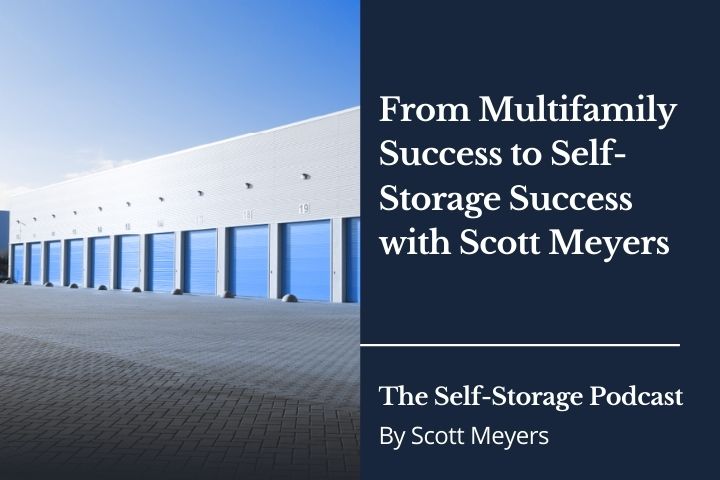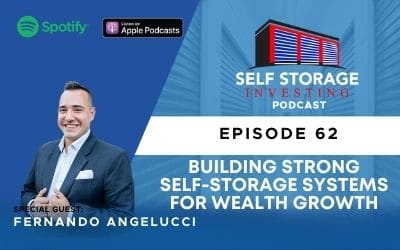Success started for Eric Brewer making $7 an hour as a lot porter – parking Mercedes and Toyotas a local new car franchise. Good thing he wore that double breasted suit to the interview. But hard work, listening to his dad, and some good contacts led to more and more opportunities. Eventually he came to realize, he was good at selling.
WHAT TO LISTEN FOR
• Why some of the best sales managers, aren’t actually very good at selling
• How building a culture leads to success
• The power of decentralized command
• Accepting your team’s mistakes as part of the path to perfect execution
ABOUT (ERIC BREWER)
Since 2006, Eric has done over 3,000 residential real estate deals in Pennsylvania and Maryland. His experience covers a wide range of deal types and strategies including novations, wholesaling, flipping, construction, director-to-seller marketing, turnkey rentals, and property management.
CONNECT WITH (ERIC)
• Website https://brewermethod.com/home
• Email info@brewermethod.com
CONNECT WITH US
• Website: https://www.selfstorageinvesting.com/
• Facebook: https://www.facebook.com/selfstorageinvesting
• Twitter: https://twitter.com/SelfStorageGuy
• LinkedIn: https://www.linkedin.com/in/scottameyers/
• Youtube: https://www.youtube.com/user/SelfStorageInvesting
• Instagram: https://www.instagram.com/self_storage_investing/
Subscribe! so you never miss a NEW episode! Leave us an honest rating and review on Apple Podcast.
Episode Transcript
Eric Brewer (00:00):
So in the beginning, I was really, really good at what I would call the old way of selling, right? I would play nice, I would make a friend, and then I would pressure the living snot out of somebody to try and make a decision on the spot. And then I did an okay job of following up because I had this sort of unique way of pressuring the living snot out of somebody without jeopardizing the relationship. Maybe I pulled back just in time before I would push them too far, and maybe that cost me a couple sales, but maybe I got 10 times more sales because I didn’t alienate people that wanted to make a decision. Tomorrow.
Self Storage (00:37):
This is a self-storage podcast where we share the knowledge and skills from the industry’s leading investors, developers, and operators to help you launch and grow your self-storage business. Your host, Scott Meyers, over the past 16 years has acquired, developed, converted and syndicated over 2 million square feet of self-storage nationwide with the help of his incredible team at Self-Storage Investing.com, who is how thousands of people achieve greatness in self-storage.
Scott Meyers (01:11):
Hello everyone, and welcome back to the Self-Storage Podcast. I am your host at Scott Meyers, and today’s guest is none other than Mr. Eric Brewer. Eric and I have been in another mastermind together for a number of years. I’ve watched him from the sidelines and what he’s done in his business, and not only is he just doing the nuts and bolts and the blocking and tackling it really well in the asset class of real estate that he focuses on, but it’s been really interesting to watch him as an entrepreneur, also somebody else who has been through another recession like myself and so many of you out there. But to gain perspective and the perspective that only comes from that, and just to watch what Eric has done, just we just had to have him on the show. So with that, everyone welcome Mr. Eric Brewer. Eric, welcome to the show.
Eric Brewer (01:51):
Scott, thanks for having me. It’s good to see you.
Scott Meyers (01:54):
Good to see you as well, my friend. Well, I’ve given everybody a longer dive into your background in the bio and the intro, but if you would, why don’t you say it in your own words and just kind of fill in the gaps. Self Storage Nation.
Eric Brewer (02:06):
Yeah, cool. So I got my start in, I guess you could call it the real world. I wasn’t much of a student when I graduated high school and was a little bit of a lost soul coming out of 12th grade. But through the advice of my father and some other people that I trust, joined the military in an attempt to really get some structure behind me, learned the value of discipline and so forth, and went into the US Army and turned out it was a really good move for me. I did my time in the military, came home, back home and discovered that unfortunately, the MOS that I chose in the military, there wasn’t much of a civilian application back home. I was a 68 Lima, which was a avionics communications repair man. And in York, PA, there’s not a big demand for avionics communications repairman.
(03:05):
So I came home and back then, this would’ve been mid to late nineties, you would still go to your local newspaper to look for jobs. And I found one said Lot Porter. I read the description and it was basically driving around new Mercedes and Toyotas at a local new car franchise. So went in, applied for the job. The only clothes I had were my military uniforms and super casual like denim shorts and tank tops. And I thought, what do I wear to a job interview? So I wore the double breasted suit I wore to my senior prom several years earlier, and I remember when the service manager still remember his name, mark Smalley, and he came out into have you’ve ever been to a waiting room in an auto, auto dealership service area. It’s one of the most interesting congregations of people because everybody’s annoyed that they’re there.
(04:05):
They’re a little anxious about when they come out and their name gets called because it’s, it’s never really good news, and they’re always waiting much longer than they anticipated. So it’s like this room of overly anxious, somewhat angry people, and it just gives off a particular energy. So this smart guy walks out and he’s surveying the room and he double takes and sees me sitting in a double breasted suit, might have been a little overdressed, and he says, Eric Brewer. And I like pop up standard attention because I’m literally a month out of the military. And I go, yes, sir. And he goes, you wore a double breasted pinch striped suit to a $7 an hour interview. I said, yes, sir. And he goes, you’re hired. And literally went back inside the paperwork. And I started, I think that next Monday. And turns out it was an amazing decision I made to go there that day.
(04:55):
The suit, although it was not intentional, turned out to be a really good decision, and I ended up working my way up from that dealership from $7 an hour. So I held a few management positions in the service department, then eventually moved into sales, had a lot of success in automotive sales, quickly became the top salesperson like my first month. And then every month after that, and then got into finance, then sales management, and then general sales management and had a really good eight year career in the auto business and just sort of got burned out that that business has a way of taking its toll on you that the hours were extremely exhausting. And I was having my first child and I knew I couldn’t be a really good car guy and a really good dad, and I had to pick one. So decided I wanted to be a good dad, and that required me to hang up my car salesman shoes.
(05:53):
So just checked out the car business and did some soul searching, consulted with my father. Again, kudos to Timothy Brewer, my dad, he’s given me some sage advice over the years. Two very pivotal times in my life because I, all I knew was the car business. So I thought I almost had to sort of stay in that lane. And he goes, listen, you’re not good at cars. You’re good at sales. And every industry has an aspect of sales. He goes, why don’t you just think a little bit bigger picture and think sales and then see if there’s something that interests you. So I had sold cars to a couple different realtors, mortgage brokers, appraisers, and I remember them making really good money, and none of them ever had anywhere to be. I remember in the sales I’d go, Hey, do you need to get out of here quickly?
(06:43):
No, no, I’m pretty flexible. I’m off today. I’m like, man, it’s Wednesday at noon. How’s that work? Right? So little did I know, right? They were going to be working Saturday and Sunday, probably 14 hour days. So I just started talking to some people that I knew in real estate and they all gave me pretty good feedback, and that was the direction I started. So my first job in real estate was I got a job at a mortgage company in 2005. I basically was cold calling refi leads, and I decided to go into finance because my experience in the car business was that the dealership that I had came up in was exceptional at finance. They could do bad credit, they could do low down payment, they could do high down payment, super low interest rate. We literally had a financial answer for everybody’s problem, and we sold a lot more cars because of it.
(07:34):
So I said, Hey, if I’m going to get into real estate, I want to have a really good financial understanding of how deals get done. And so I started in mortgages and was doing that for about six months, having a lot of success. And turns out my mentor from the car business was getting into real estate, caught wind that I had ventured out into real estate related job and was out of the car business. And he called me and said, Hey, do you want to do business together and start flipping houses? And we had a lunch meeting, a phone call, and within a couple days we decided to start flipping houses. And that was in 2006. So that path of everything that I just shared with you led to 2006, February of 2006, we started buying houses, and that was how I got into this particular asset class and niche of real estate investing.
Scott Meyers (08:28):
Well, there’s a lot to pull out of that. Eric, thanks so much for sharing. And first of all, thank you for your service to our country. I never served in the military, and it’s interesting, I’ve just had the passing of my wife’s stepdad and my dad both were in the military, and when you honor them at a military funeral, as well as looking back on this generation, that generation I should say, who willingly signed up and yours to go serve in the military and put your lives on the line for freedom, it’s just something that it almost gives me a little bit of anxiety and almost a little bit of guilt and shame because I enjoy the freedom that I have around here. So I can’t be thankful enough and in gratitude for your service because I enjoy the freedom that we have in this country more, well, more than most perhaps.
(09:17):
And another good thing, folks, you can never be over prepared for any meeting. And I know that there’s still, and as we’ve navigated, Eric, you probably questioned this several times, every your career, where do a meeting, what’s appropriate? Can you be too overdressed and to intimidate the other person? Is that not appropriate? And can it be underdressed and not make an impression, guys, a suit and a tie? And just about any occasion, you don’t ever have to apologize for that. And if it’s really uncomfortable, then you can just say, well, I’ve, I’m going to another meeting that’s more important than yours if that person feels intimidated. So not just what you wear, but always being prepared no matter what meeting you go into, having the agenda, knowing who you’re meeting with and making sure that you treat them with respect and you understand and give them the level of respect that they deserve.
(10:05):
So with that, we got into real estate, we got into houses. And what would you say then, you know, took off after that? And as your dad said, great that you got that sage advice from him over the years regarding sales. What did you feel was perhaps your superpower as you began to build the business? Where did you then come into your own? Was it just in the sales side? Because you’ve worn many hats in your real estate business now to the place where you are in terms of being the visionary and casting that out. But what would you say has been your superpower, your strong suit that really allowed you to elevate and grow your company and then get some folks underneath you, some good lieutenants to serve underneath you?
Eric Brewer (10:45):
Wow. I’ll give you two answers if that’s okay. One is what I thought my superpower was when I started and turned out I was misinterpreting my skillset. And now I think I do a better job of fulfilling the promises I made to myself, my coworkers, and my customers better than I did 17 years ago. So if you asked me what sales was back then, and that’s how I would’ve labeled my superpower, I was really good at selling. The funny thing is I couldn’t tell you why. I would probably give you a canned sort of description of what I thought was important when you were to try and play the part of guiding someone through a major decision, like purchasing a car, purchasing a house, or selling a car, selling a house, or making a significant investment. But it wasn’t a repeatable documented process.
(11:47):
I kind of relied an awful lot on my instincts. I kind of flew by of my pants and I treated every customer differently, which is not the ideal way to have consistent results. So in the beginning, I was really, really good at what I would call the old way of selling. I would play nice, I would make a friend, and then I would pressure the living snot out of somebody to try and make a decision on the spot. And then I did an okay job of following up because I had this sort of unique way of pressuring the living snot out of somebody without jeopardizing the relationship. Maybe I pulled back just in time before I would push them too far, and maybe that cost me a couple sales, but maybe I got 10 times more sales because I didn’t alienate people that wanted to make a decision tomorrow, which is not easily forgiven in the car business.
(12:42):
If you were to talk to somebody 15 years ago or 20 years ago in the car business, they would literally say things like buyers or liars, and once they leave, they’re never coming back. And all of this sort of outdated, prehistoric, caveman sales language. But I was really good at selling. I would talk to every customer, which is a skillset. I think experienced salespeople start to qualify prospects, and they actually become, they have x-ray vision of they can tell a buyer or a investor or a seller from a hundred miles away, and then all they really start doing is pushing away reasonable prospects because they don’t fit the description of what they think that that person should look like. And I just never really did that. I think what made me really good is I was willing to talk to everybody and then somewhere early on I would go talk to someone that every other salesperson sort of pre-qualified from 30 yards away, and I ended up doing business with them.
(13:41):
And then they would say things like, Hey man, I really appreciate you coming to help me. I’ve been around to a couple dealerships and people blew me off, or they didn’t think I was serious. And maybe it’s because the car they drove in, or maybe it was the way they were dressed or whatever. There’s a thousand different ways I think experience salespeople can prejudge a client from a mile away. And then I was like, well, hey, that worked to my advantage. I’m going to continue doing that, even if it’s not the most popular thing to do, or with this experience guy that makes half as much money as me do tells me what I should be doing, I’m not going to take that advice. And then I carried that over to real estate and I literally would just talk to everybody. Good credit, bad credit, they just bought the house a year ago.
(14:23):
They’ve owned it for 30 years. I had a willingness to talk to each and every person that expressed a minimal interest in what we did. And it led to a, I think a pretty quick turnaround. And us being new to the business and never buying a house before to, in our first full year, we did about 70 plus transactions, and it also sped up my burnout. It’s really hard to maintain type of pace. And both of those were really, I was like, how do I continue this trend of not pre-qualifying and judging people and trying to help as many people as possible, but how can I make that a sustainable system that I don’t burn me out and every other person that works with me? And it took me several years to figure that out, but I always had sort of an awareness about it and tried to get a little bit better each day with how I was able to walk those two very fine lines, how can I be efficient but try and help as many people as possible? It seems like an insurmountable task, but I feel we’ve gotten a little bit better at it each and every day, each and every month, each and every year. And now I think we were able to say that we do both of those very well.
Scott Meyers (15:38):
That’s good. That’s good. And you know, bring up a good point with regards to experience to salespeople. I think at some point everybody goes through a training and a formal process, and there’s many of those systems out there and using some of those same quips that you had just mentioned as well, only to realize that you can’t figure every person out and there’s not much more to a sale than a process that something needs to be led through because they have a personality that’s going to be turned off. Or somebody didn’t give them the manual to say, oh, wait a minute, Eric, you’re on step four of this process in which I’m supposed to say this. And you’re supposed to say that. I mean, you just have a conversation and it should lead to a sale. And perhaps I won’t say that I’m the best salesperson on the planet.
(16:25):
I can sell when I have to, and every job has that component to it. But at the end of the day, if somebody doesn’t reach a logical conclusion because of what I presented in terms of the facts and the reasons why they should do something, then it wasn’t meant to be. There isn’t a process that you naturally have to go through. There’s so much more that goes into that, but that leads into so many areas of the business and having that background and understanding that, then I think if you’re good salespeople because you connect with people on that front, then that allows you to then not force sell people, but to lead sometimes persuade, sometimes give a professional push, but to lead than the people in your organization. And so tell me then that transferring that skillset over to building the organization that you have right now and then training up those people that have come underneath you, has that always been natural? Did that look like a process? Was that, were you drawing on your military background to grow an organization and from a leadership standpoint or how did that happen?
Eric Brewer (17:22):
No, that’s literally the messiest part of my career path that if anybody were ever to go back and unpack the last 17 years of my real estate career, that would be the part I would be the least proud of. And in the beginning we were, I would say really, really good at marketing and sales. I was literally the worst at every other part of the business. I stunk at hiring. I was horrible at construction, we weren’t even really good at acquisitions. What I was good at is once I got a property and I renovated it, I could generate so many leads from prospective buyers and then take one of those 300 people that contacted me about buying that house, help ’em get approved, guide ’em through the home buying process, lead ’em to a place where they felt comfortable buying my property. And I did so in the beginning without the assistance of a real estate agent.
(18:16):
So literally 50% of the profit we were making was just saved commissions because in that point we were just committed to going the route of selling our properties on our own. So I made every mistake, I bought it too high. I either under renovated, over renovated, bought the wrong property, I bought every property with low ceilings, flood zones, steep driveways, neighbors with dead animals laying in the backyard and people get to my house and go, this is really not what the heck’s going on over there. So there’s this list of mistakes that I made over the first several years that became like, Hey, if any one of these 10 things are present, we’re just not going to buy it regardless of the price. But I literally had to buy 20 of those before I learned my lesson. So in the beginning I was, when I say we were good at sales, I mean we were really good.
(19:08):
And I can adamantly tell you that we were horrible at literally everything else. So because I was good at sales, I would sell employees on coming to work with me. I was horrible at treating ’em in a manner that made ’em feel respected, challenged, appreciated, cared for, nurtured, literally anything that anybody would want out of another human we sucked at. But I was so good at selling them on the vision and the concept of coming to work with us and make a bunch of money and learn a new skill that some of that would just carry over that it was a year, two years, three years before they realized how miserable they were and were willing to say, Hey, I don’t want to work with Eric anymore, even though I’ve made all this money and I’ve acquired this skill. The other 80% of what’s important to me about where I work, I’m just not in love with, so I’m going to leave.
(19:58):
So I would say for about the first 10 years, every three years I had nearly a hundred percent turnover. And I would bring in literally 19, 20 year old people that were working a seven, $8 an hour job. But I saw potential in, and I would coach ’em up and I would get ’em to this point where for a year and a half, they just rode this emotional high of, holy crap, I can’t believe this is happening to me. Look how my life is changing for the better. And then once they got to a place where I was, Hey, I had a lot of success last year, but now my home life is not what I wanted to be getting tired. This guy yells at me when things go wrong and he doesn’t pat me on the back when things go. So I did that for about 10 years, and periods of great success had times where my entire team over the course of six months left and I had to rebuild.
(20:55):
And it was about 10 years in, so about six or seven years ago where I started to imagine, hey, maybe I don’t just need to be good at sales. Maybe I need to be good at this whole actually keeping good people thing. And so I started down the path of what’s an operating system look like? What’s leadership look like? I always thought a sales manager was the best salesperson that had been there long enough to get the authority to tell everybody else what to do when it turns out that’s not really the job at all. Some of the best sales managers I’ve ever seen aren’t really great at selling. They’re just really good at getting the most out of their salespeople, which is not telling ’em what to say to a customer when they say, no, I don’t want to buy your product. So I was a really good salesperson in the beginning, probably the world’s worst manager and business owner and leader, and it took me about 10 years.
(21:50):
I guess that makes me a slow learner, but to realize that you need to be both. And I started working on becoming a better leader, business owner, visionary, someone that’s able to inspire people to do their best day in and day out, and then attach that work to a bigger picture. And I’m fighting that fight every day, still trying to become a better leader because that for me is the pinnacle of what we’re able to do is to lead other leaders. And so that’s what I’m working on now, and I just do that inside the world of residential real estate.
Scott Meyers (22:26):
And you’re so right, Eric. I think when you read Michael Gerber’s book, the E Myth, there’s so many people that start their own business, they started out as that technician. So for us, in real estate, it’s buying and renovating houses or in self storage or multi-family graduating into any other asset class. It’s the same for the H V A C guy wants to go out on his own. And so he gets a truck and grabs the tools that he’s bought, and he goes and starts on his own and take any other type of industry or business that somebody starts and they start out as that technician who just wants to go out on their own and do more of that. But when you get to a point where you’re successful and you have to grow and you have to bring on folks underneath you, then that requires a completely different skillset and ancillary bolt-on skillsets.
(23:14):
And that is of a leader. And I would say that there’s a number of folks out there listening right now in Storage Nation that they find themselves in that same position, and they may be even feeling a little squeamish right now and recognizing that they haven’t leaned in and taken that role seriously. And I know that I’m sitting back here as you’re telling your story, and that was the same for myself in the beginning was, you know, should be pleased that you’re working here in this organization because I’m a nice guy and I only yell every once in a while, and we have this grand vision, but the vision’s all around me and building a company and brand, and you get paid a lot of money and you get to come along. And that should be enough only to realize, as you mentioned, that as I begin to recognize the blind spots that I have as a leader, and which are many, many, many, that people, it doesn’t matter about the pay, it doesn’t matter about so much, even the recognition, but it’s that they want to be a part of something and they want to be a part of something because of the leader and the vision that he has or she has that is doing something a little bit greater than they could find anywhere else.
(24:17):
They do want the kudos and they do want to be able to show that they’re valued and appreciated as well. But it really is truly building a culture. And that is not just the consultants speak or seminar speak, it’s that you have to build a culture and a family like atmosphere inside. Otherwise people can always go somewhere else if they’re really good and you train ’em very well and they get a good skillset. So that does take that extra dose of some leaders are born and they’re natural at that. I was not. And it sounds like you too, Eric had to learn and lean into on that side of the biz.
Eric Brewer (24:51):
Yeah, I’ve described it often as the most challenging part of my career, even starting in the military and just how challenging that can be for an 18 year old kid starting in the car business, which is a high pressure sort of cutthroat sales environment with no formal sales background, starting a business and becoming an entrepreneur. All of that, to me was easier than becoming a leader because I think everything that I did up to that point, an actual leader felt counterintuitive to everything that I had done that actually got me to the level of a success. So you do all of this stuff and it leads you to a place of what most people would see as the epitome of success. You have cars, you have houses, you have employees, you have a certain level of freedom, you have everything that appears tangible that would say that, Hey, you made it.
(25:50):
And then you have to say, okay, now that got me to where I am today, but I need to not just change my thinking, but almost do the opposite. I literally made every decision, like people said, don’t micromanage. I’m like, well, hold on. That’s how I got to where I am. How could you say that that doesn’t work? Because it got me this success, but I wasn’t really successful. I had just had more success than the people that worked with me and for me and sometimes my competition, but that was the best in my market or the best in that particular niche. Or maybe I was just doing really well. I wasn’t the best version I could be, which is really what you should be competing against. And it was really difficult. And I would tell you halfway through, if you’d have gave me a free start over card, I said, yeah, let’s just go back to the old way. I was miserable. At least I was comfortable. But that I feel like I’ve started to come out the other side, I would do it all over again, even though it was probably the hardest thing I feel like I went through in my life. Anyway. Yeah, that was, it was the most difficult thing I’ve ever done was to make that pivot from competent manager to a leader that for me was probably the most difficult path I ever went through.
Scott Meyers (27:08):
So let’s talk about your org structure for a minute. Now. You’ve got how many total staff members?
Eric Brewer (27:14):
40
Scott Meyers (27:16):
And how many direct reports to you that you have regular meetings or conversations with? Two. Two. When did you get to that place and talk about the migration to getting to the place where you are now, where I, I’m assuming is visionary and call it a title, whether it’s CEO or CIO, whatever that looks like. But how did you get to those two people that you entrusted to be able to handle the rest?
Eric Brewer (27:44):
So it started for me about six years ago, seven years ago, I hired a consultant. I still have it taped at my desk as a reminder. And this gentleman was, he ran an organization, a consulting agent called Execution Based Leadership. And at the time he was teaching me pretty basic concepts like decentralized command and how to implement real communication that not only gave Bill people the ability to talk about important items, but also created an environment where they strengthened personal relationships. They were given the opportunity to speak up even if what they had to say didn’t align with my plan or my opinion, which I think generally as managers and business owners, we severely overshadow the thoughts and ideas of the people that work for us because we’re so convinced that our vision and our elected sort of strategy is the only one and it’s the best one.
(28:52):
And it turns out once you start to really allow people to weigh in, I think the real strength in our organization is that we have 40 brilliant people in their own capacity that have not only the ability, but the obligation to speak up is that’s where we’ve seen I think, a transformational difference. But it started seven years ago, I hired a consultant. I actually then was like, Hey, I don’t want to do any of this stuff. Can I just hire you and instead of teaching me, why don’t you just do it for me? And he came on board as a full-time employee at that point he had run a couple different very large organizations and he was like Six Sigma certified. He was EOS certified and that really sort of helped us turn a corner as an organization. He retired three years later, he was in his early sixties.
(29:50):
I then went out and hired a replacement, which was really good for about three and a half years. I then not, I was a bad leader to that person. So that relationship, two and a half to three years in ended hired another coo, who you’ve probably met Mont at our meetings. He’s now been promoted to chief growth officer, so he helps us move into new markets. We’re now in the mergers and acquisitions business we’ve gotten into and are starting the process by the beginning of Q4 to be into the land entitlement commercial multi-family business. He’ll lead every new initiative that we do. And I’ve now onboarded my fourth C O L. So that’s taken in total about six and a half years to get to that point with Major. So I went from not just being a subpar manager of 30 employees to now, I was just a really bad leader to the most important employee in my organization who was a COO.
(30:56):
And I had to learn how to do that, right? I went from micromanaging 40 people to micromanaging one, which felt like a huge sort of step in the right direction for me, but I just consolidated my toxic behavior from 40 people down to one. So I had to learn how to really allow people to make mistakes on their own without me protecting them from that, allow them to make strategic or execution decisions without sprinkling my little touch to make it just a little bit better each and every time they have a great idea, I have to make it just that much better. But really all I was doing is fueling my ego to make sure that I didn’t turn over all of the success of the company to somebody else. So I really had to learn to humble myself. I had to learn to really trust and allow people to make similar mistakes that I had made and own the outcome of what the business was doing, not just have 40 people running around doing exactly what Eric told him.
Scott Meyers (31:56):
Yeah, I don’t want to throw around a whole bunch of names, and it’s not like, because I know these folks, but some of the things that you touched on, Eric, e o s, for those that are not in the know most of that have been listening to this podcast now that we follow the Entrepreneur Operating System and Traction that it was brought about in many instances and talked about on a couple of our episodes, but then also at the end of the day, six Sigma was more of a quality initiative and that was it GE that really implemented that Jack Welch that created that, or am I mistaken? I know it’s been around a while, but then really just it roll boils down to execution. And I wrote down four dx, the principles of four dx, if you haven’t read that book, but just not to throw names and books around, but what it all boils down to is execution, you know, can have great ideas and you can know where to go.
(32:47):
You can know what the process is, you can see all the way through the steps that need to happen. But if you aren’t the person who is going to step in and execute, then you have to hire somebody to be able to execute. And then again, to throw out another name in another book, Dan Sullivan. And not Who, but or not, but who, and in hiring the people. And so it sounded like you hired the integrators, either the folks that were going to go out and actually execute and make that happen, because without execution, nothing happens. And the more that I look at my blind spots, Eric, I think that has always been when I can point to any failure or the reasons why things aren’t moving forward or as fast as I want to, it’s just a lack of execution. And I’m usually the one that is in the way of that.
(33:27):
And I’m not just, I’m hiring somebody or delegating and then stepping out of the way and not adding my secret sauce or my signature to it, as you mentioned as well. And so this is lessons learned also, I think for folks out there, if you find that you’re in those positions and things just aren’t happening, it is about just getting the right people in place and then getting out of the way and just allowing them to execute and not having to take the glory or anything else but just make things happen. Or as Zuckerberg says, they just move fast and break things, and then sometimes you just need to do that and not have to micromanage it.
Eric Brewer (34:00):
Yeah, it’s interesting. I mean, feel, maybe I’ve just paid closer attention to it, but in the last five years, this integrator COO position has become a popular topic. And anytime that someone asks me advice about how to manage that relationship or how to hire that person or things that I wish I had done differently is, I can tell you the mistake that I made is I put a lot of time and energy around creating KPIs and job descriptions and all of this stuff for this integrator, COO. But I think the fundamental strategic mistake that I made is I didn’t create a job description for me as a CEO. So I now created this job and these expectations and these metrics for this other person to really be judged by, but hadn’t created a new set of metrics and a new set of descriptions for what I should be working on.
(35:06):
And then I can tell you, as much as I complained about wanting to be freed of the day-to-day decision making, once it was taken from me, I felt that I had lost a certain piece of my identity, which again goes back to me about how it was a very humbling experience for me is I don’t want to be making all these decisions. I don’t want to have to weigh in on every deal that we make. And then when it was gone, I was like, Hey, you sure you don’t need me to help you make that decision? I could probably help you make it quicker or make it better. And then all that you really do is that’s how you’ll ruin a good integrator. That’s how you’ll ruin. But at the same time, we still need fulfillment in our work. And that was the big learning lesson for me, is almost before you create this job description for an integrator coo, because you can Google it, you can get it from a number of consultants.
(35:56):
I was very lucky to have Gary and Susan Harper help me implement e o s, right? They came here for three days and we batten down the hatches and got to work, and by the time they left, we were on an operating system. But if you don’t create your new job description as the C e O vision, I think a lot of times we throw around this term of visionary not as a description of what we should be working on, but this build-in apology of how messy we are as a manager or a leader. We wear it as not a badge of honor, but a built-in excuse slip that says, Hey, hey, I know I’m not leading you the way I should. I know I’m not really good at being organized, or I know haven’t done a good job communicating the purpose of the company to the employees, but I’m just a visionary. Give me a break. And it’s like, no, that’s not this loose set of disruptive behaviors that you get permission to go do. There’s actually, it’s the most important job in the organization.
(36:57):
If you think about it. The people, Jim Collins says this, right? And if you’ve had a chance to read Good to Great, great by choice how the Mighty Fall, the guys wrote some, I think some of the most impactful business books that I’ve ever read. And he talks about the value of fanatic discipline in an organization that’s typically not going to come from a visionary like myself, that’s the integrator. But he also talks about things like productive paranoia. That is me. No matter how good things are. I’m always wondering, is this just the market? And we still kind of suck, but we’re pretty lucky right now. Or it’s almost like I hesitate to give things full credit so that we stay curious and we keep challenging to say, Hey, what if this were to dry up or stop tomorrow? How would we innovate or how would we be able to sustain this environment of real joy that we have now?
(37:50):
When things are going well in our organization? Everybody’s just happy. They’re connecting, they’re collaborating, they’re coming in early, they’re staying late. And then the instant that starts to pull back, it’s like people don’t talk as much. Maybe there’s a little stress that carries out. You got to really work to protect that. Things can be great all of the time, but you have to act as if they’re not as good as they are when they are really good. You have to take it with a grain of salt and say, Hey, I know this is going really well, but it could disappear in an instant. What are we doing to make sure that we’re curious as to things that are changing or could change down the road? So that for me, I think was a really big sort of lesson that I didn’t just ride the market and when things were good, I would celebrate when things were bad, I would work really hard. We’ve now balanced that like Jim Collins, the 20 mile march when there’s three feet of snow, you go 20 miles when it’s 70 and sunny, we still go 20 miles. And that that’s rid a really big game changer for me. Just adopting that mentality.
Scott Meyers (38:58):
And I think that that’s tough at times, that productive paranoia piece as well, that I love to celebrate and give kudos. But then usually that’s on the heels of, and here’s where we can be better. Many times I could just see that I’ve just sucked the life out of my staff, whether it’s in a meeting or an individual. And as it’s coming out of my mouth, I can see it happening and I can’t pull it back. So that is something that I’ve, I think I’ve gotten really good at. And I haven’t licked it completely because I have that paranoia because I’ve got a lot of payrolls that I need to make. And there’s not just somewhere about the goals or adding another comma in a zero, it’s there is truly a responsibility. And with our mission efforts, we really have a responsibility and keeping things moving along and the money rolling in the door and enough to go around.
(39:49):
But sometimes I do that at the expense of recognizing the folks that have gotten this up to this next milestone. Well, Eric, in the few minutes that we have left here, you’ve been through this for a number of years now, 20 years growing an organization and gotten to that place where I think many people either aspire or should be, where you’ve just got a couple of reports and if you’ve got a staff of 40 underneath you, there’s no way that you can be speaking life into each and every one of those folks and into their position. So what Storage Nation is, most of our folks are growing and scaling. They’ve got maybe a handful of facilities under their belts, they’re hiring staff and either ramping up as we head into this next economic phase. Some people that may be also backing off a little bit, maybe having to either stay where they are right now are maybe even letting folks go. Let’s talk about the skillset that you think is probably most needed at this time when people are in that growth phase. And what is something that everybody should be hyper aware of as they head into this next phase of scaling up, or if they are happening to scale back, what is it? Whether it’s a trait, personnel trait, or a skillset within the organization that you think is most important right now.
Eric Brewer (41:16):
And I think that that could be potentially different person by person. For me, I’ve worked really hard to get this job description down to one word. I haven’t gotten there yet, but I started with a paragraph that was like, how do I align my personal why or my personal purpose with my work? So then I took my life’s purpose and I said, how does that translate to the work that I do when I’m at the office? And then I’ve worked those paragraphs down to where I’m now at three words and I would encourage it. And the reason I’m trying to do that is it’s so clear that it can be summarized in one word. And I think, so to answer that question as short as I think discipline and focus, but then it’s like, okay, that’s a cool bumper sticker, Eric, what does that mean?
(42:09):
If I listen to this podcast, do I just run around the office all day? Do I get discipline tattooed on one side of my neck and focus? What does that mean? So I don’t want to just give buzzwords. So discipline for me was extremely challenging. I hired discipline. I hired someone from the manufacturing background, like six Sigmas, almost overkill in the general fix and flip wholesale, residential real estate, just not that complex. And I’m like, I want to go so far in pursuit of discipline. I’m going to overhire for that position. So I hired someone from a manufacturing background that was, sees a black belt or something. They have different belts and that classification, and he’s like at the top. So I think for me, I was like, Hey, I can’t provide the discipline that this organization needs. I’m going to hire it. And then focus is really created by discipline.
(43:04):
The reason we lose focus so often is because we’re not disciplined with our thinking. We’re not disciplined with our actions, and then we end up not being disciplined in our results. And something else I learned from Jim Collins. So I think for me, I can summarize my job description in three words. It’s relationships, experience, and freedom. If I create enough of new meaningful relationships, we’ll constantly be on the cutting edge of what’s next. If I put a focus on nurturing existing relationships, I’ll retain top talent. If I do all of that, the experience for our customers, our investors, our vendors, our employees will be exceptional. And then thirdly, that’ll start to create freedom for myself. Because if I have enough great relationships, the experience for all of those people that I care about is a remarkable experience, and they start to gain freedom in their thoughts and freedom in how they behave and freedom in their finances.
(44:03):
That all translates to freedom for me. So my new job description is relationships, experience, and freedom, that that’s where I focus all of my time and energy in those three areas each and every day. And it’s to try and give those three things to everybody that I come across. So if you think about that, in order for me to do that, I need a discipline and focus. I think those are the two most important things that you need to have at an organization. And again, my version of discipline is I got to identify the one area where I’m at three, but what’s the one area that I know if I have discipline and focus will provide the greatest amount of value to the organization? And that’s where I’ve landed it. So maybe I’ll never get to one. Maybe I, I’ll be able to hire out experience, maybe I’ll be able to hire out or sublet or delegate freedom. But for now, I own those three things. And it all came from discipline and focus. I think those are the two core things you have to, to be able to thrive in any market.
Scott Meyers (45:05):
And I would echo that as well. I mean, there’s a lot of lessons that I’ve learned along the way, and there’s a lot of little, I have notes on my desk as well. And recognizing if I’m doing something for 15 minutes that I should be handing off to somebody else, if after 15 minutes it’s not completed or it’s not a good use of my time in terms of I guess my salary level or the decisions that I need to make, then I need to hand that off to somebody else. And I all prey to that as well. And being busy for busy’s sake and not doing the things that are going to move the company forward or what is in the best interest or in my job description as well. So I think it’s a good listen for anybody because we could all feel all be busy five days a week and then go home and feel maybe good about the fact that we kept busy and we don’t screw around and play video games. But is that really truly discipline? And then focus on doing the main thing. There’s only one priority. Yeah, there’s no such thing as priorities, plural. There’s only one priority for the day or for the position or for the organization that you need to be focused on in your role. And sometimes it’s kind of hard to see. And by human nature, I think we decide to fool ourselves because naturally we’re designed to seek pleasure and avoid pain. And so discipline and focus, you usually don’t go hand in hand with seeking pleasure. Yeah.
Eric Brewer (46:19):
Does help you avoid pain, that’s for sure.
Scott Meyers (46:21):
It does. It does. Well, Mr. Brewer, so good to catch up with you again, and I’m so looking forward to being back in the same room with you as well in just about a month or so in addition to that. So I appreciate you sharing your insights into leadership over the past 28 years and building your organization and getting to the level where you are. And I know Storage Nation got a lot of value out of that as well. So I appreciate your time today, my friend.
Eric Brewer (46:47):
Appreciate you having me.
Scott Meyers (46:49):
All right. We’ll see you soon, Eric. Take care.
Self Storage (46:53):
Hey, gang, wait three things before you leave. First, don’t forget to subscribe to this Self-Storage podcast and turn on your notification so you never miss another episode. And while you’re there, please leave us a five star review if you like the show. Second, be sure to share your favorite episodes and more via Instagram, and don’t forget to tag us. And lastly, head to the link to the show description and hit the following subscribe button on Twitter and Facebook to get a front row seat as we grow and scale our business and bring you along with us. Take care.















